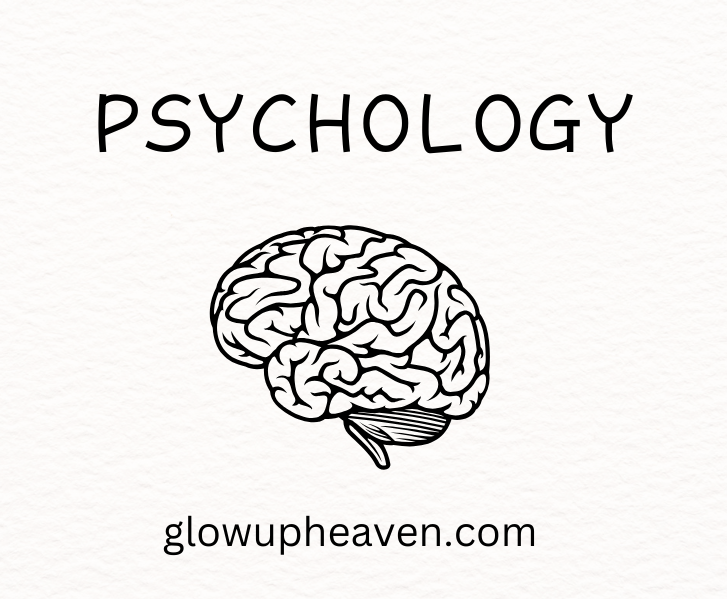What is Psychology?
Psychology is a compelling science that examines the intricate workings of the human mind and behavior.By understanding psychology, we gain insight into why we think, feel, and act the way we do. This knowledge is not only academically enriching but also practically beneficial in various aspects of life. In this comprehensive guide, we’ll explore what psychology is, its branches, importance, and how it impacts our daily lives.
Content
‣ What is psychology
‣ The history of psychology
‣ Branches of psychology
‣ Why is psychology important
‣ Application of psychology
‣ How to study psychology
‣ The future of psychology
‣ Conclusion
What is Psychology?
Psychology, at its core, is the scientific study of the mind and behavior. It encompasses a broad range of topics, including cognition, emotions, motivation, and mental disorders. Psychologists aim to understand how people perceive, think, and interact with their environment and each other.

The History of Psychology
The history of psychology dates back to ancient civilizations where philosophers like Plato and Aristotle pondered the nature of the mind. However, psychology as a distinct scientific discipline emerged in the late 19th century with pioneers like Wilhelm Wundt, who established the first psychology laboratory in 1879.
Branches of Psychology
• Clinical Psychology:
Clinical psychology centers on the diagnosis and treatment of mental, emotional, and behavioral disorders. Clinical psychologists operate in diverse environments, such as hospitals, private practices, and mental health clinics.
• Cognitive Psychology:
Cognitive psychology investigates mental processes like perception, memory, problem-solving, and decision-making, exploring how we acquire, process, and store information.
• Developmental Psychology:
Developmental psychology examines the psychological growth of individuals throughout their lifespan. It looks at how people change and grow from infancy to old age.
• Social Psychology:
Social psychology explores how individuals’ thoughts, emotions, and actions are shaped by the presence and interactions with others.It covers topics like group dynamics, social perception, and interpersonal relationships.
• Industrial-Organizational Psychology:
This branch applies psychological principles to the workplace, focusing on improving productivity, enhancing employee well-being, and optimizing organizational structures.

Why is Psychology Important?
Understanding psychology is crucial for several reasons:
• Enhances Self-Awareness:
It enables them to recognize their thoughts, emotions, and behaviors, leading to improved self-awareness and personal growth.
• Improves Relationships:
Knowledge of psychology can enhance interpersonal relationships by fostering empathy, communication, and conflict resolution skills. Understanding psychological principles helps in building healthier and more fulfilling relationships.
• Aids in Mental Health:
It helps in identifying, treating, and preventing mental health issues. Therapies and interventions developed through psychological research can significantly improve the quality of life for individuals with mental health conditions.
• Contributes to Personal and Professional Development:
Psychological insights can be applied in various aspects of life, including education, career development, and personal goal setting. Understanding motivation, learning processes, and behavior modification techniques can lead to greater success and satisfaction.

Applications of Psychology
• Education:
Psychological principles are used to develop effective teaching methods and educational programs. Understanding how students learn and retain information can lead to improved educational outcomes.
• Health and Wellness:
Psychologists work in health care settings to promote physical and mental well-being. They develop interventions to encourage healthy behaviors, manage stress, and cope with chronic illnesses.
• Marketing and Consumer Behavior:
Psychology is widely used in marketing to understand consumer behavior and preferences. Companies use psychological principles to design effective advertising campaigns and improve customer satisfaction.
• Criminal Justice:
Forensic psychologists utilize psychological concepts within the realms of the legal and criminal justice systems. They assess offenders, provide expert testimony, and develop rehabilitation programs.
• Sports Psychology:
Sports psychologists work with athletes to enhance performance, improve mental resilience, and develop effective coping strategies. They help athletes manage pressure and maintain motivation.

How to Study Psychology
If you’re interested in studying psychology, here are some steps to get started:
• Obtain a Degree:
A bachelor’s degree in psychology is the first step. For advanced positions, a master’s or doctoral degree may be required.
• Gain Practical Experience:
Internships, research assistant positions, and volunteer work can provide valuable hands-on experience in the field of psychology.
• Stay Informed:
Psychology is a constantly evolving field. Staying updated with the latest research, attending workshops, and joining professional organizations can enhance your knowledge and skills.
• Specialize:
Consider specializing in a specific area of psychology that interests you, such as clinical, forensic, or industrial-organizational psychology. Specialization can open up more targeted career opportunities.

The Future of Psychology
Psychology continues to evolve, integrating new technologies and research methodologies. Emerging fields such as neuropsychology and cyberpsychology are expanding our understanding of the brain and behavior in the digital age. As our society faces new challenges, the role of psychology in addressing mental health issues, enhancing well-being, and improving human performance becomes increasingly vital.
Conclusion
In conclusion, psychology is a multifaceted discipline that offers profound insights into the human mind and behavior. By understanding psychology, we can improve our self-awareness, enhance our relationships, and contribute to the well-being of society. Whether you pursue a career in psychology or simply seek to understand yourself and others better, the study of psychology offers valuable knowledge and tools for personal and professional growth.
By exploring what psychology is and its various branches and applications, we gain a deeper appreciation of the complexity and richness of the human experience. Embracing the principles of psychology can lead to a more fulfilling and enlightened life.

